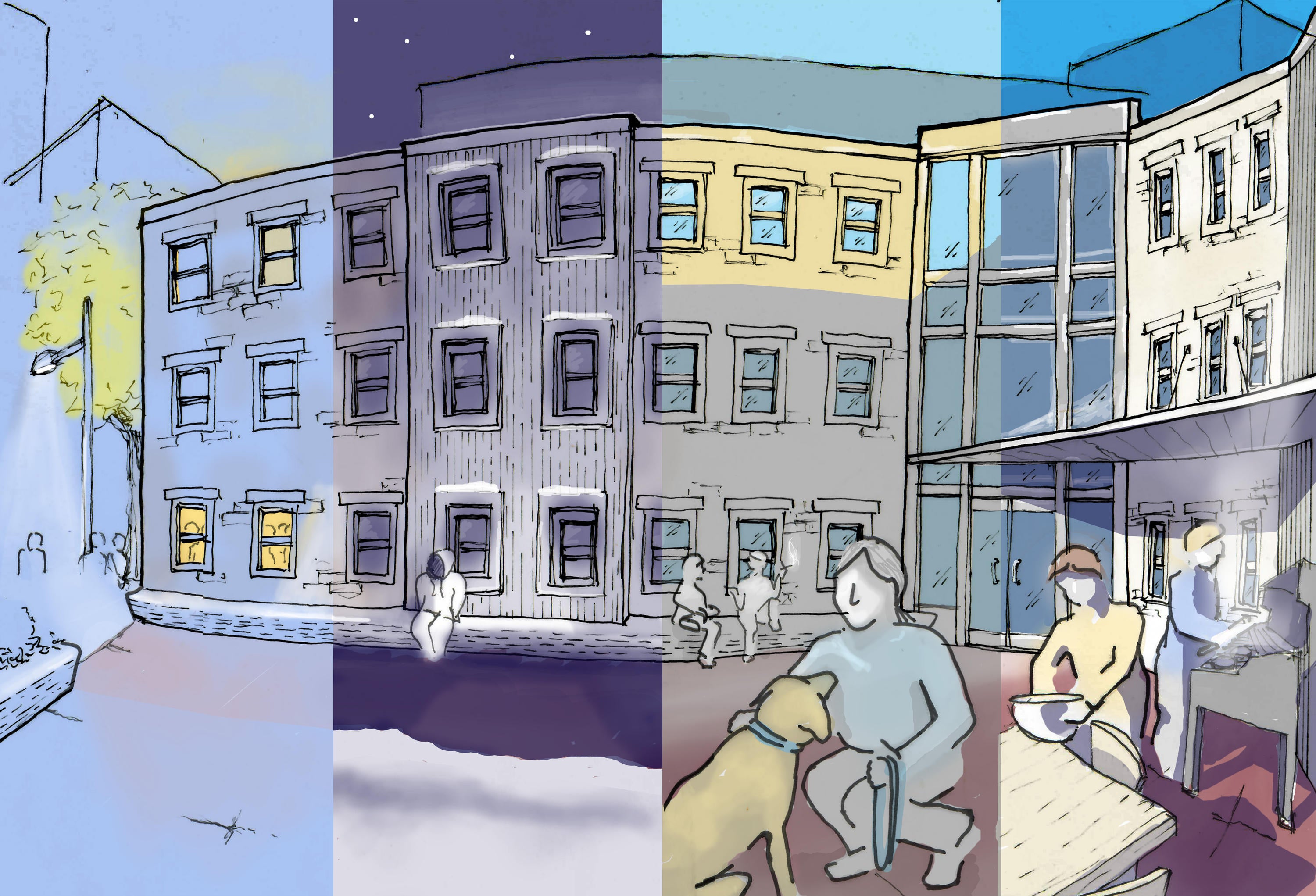
Of the thesis entitled: The Importance of Place: A Role for the Built Environment in the Etiology and Treatment of Problematic Substance Use
Faced with the growing North American drug crisis, and in light of the history of ineffective or even harmful approaches to treating problematic substance use, it is time to examine the problem from a new angle. There is a significant undercurrent in both the history of problematic substance use treatment and research into problematic substance use etiology that has thus far been overlooked: the role of the built environment. Based on research gathered from the fields of addiction, architecture, human geography, planning, psychology, and neuroscience, the concept of place is proposed as a new paradigm for foregrounding the built environment as a key factor in the etiology of problematic substance use. In addition, the process of place-making, as realized through participatory design in architecture, is proposed as a new component of problematic substance use treatment.
To knit together the seemingly disparate topics of problematic substance use and the built environment, Part 1 of this thesis first uncovers the spatial undercurrent in problematic substance use treatment and etiology research, including a greater historical correlation between etiology and spatial management than between etiology and treatment, and briefly examines the accepted, superficial intersection of problematic substance use and architecture. Next, the concept of place is leveraged to draw together research from the fields of architecture, human geography, planning, psychology, and neuroscience, summarizing the influence of the built environment on human wellbeing broadly.
Part 2 intersects the fields of place and substance use through a literature review, and generates four recommendations to establish place as a new paradigm for understanding the etiology and treatment of problematic substance use.
Part 3 explores the current state of one method of placemaking, processes of participatory design in the field of architecture, as a first step to realizing the new support and treatment process proposed in Part 2.
Finally, Part 4 proposes an architectural conclusion through a speculative typology for the support and treatment of individuals experiencing problematic substance use and co-occurring homelessness.
Supervisor:
Elizabeth English, University of Waterloo
Committee Members:
Jane Hutton, University of Waterloo
Andrew Levitt, University of Waterloo
External Reader:
Ella Dilkes-Frayne, The Australian National University
The
committee
has
been
approved
as
authorized
by
the
Graduate
Studies
Committee.
The
Defence
Examination
will
take
place:
Tuesday,
September
25,
2018
6:00
PM
ARC
2003
A
copy
of
the
thesis
is
available
for
perusal
in
ARC
2106A.